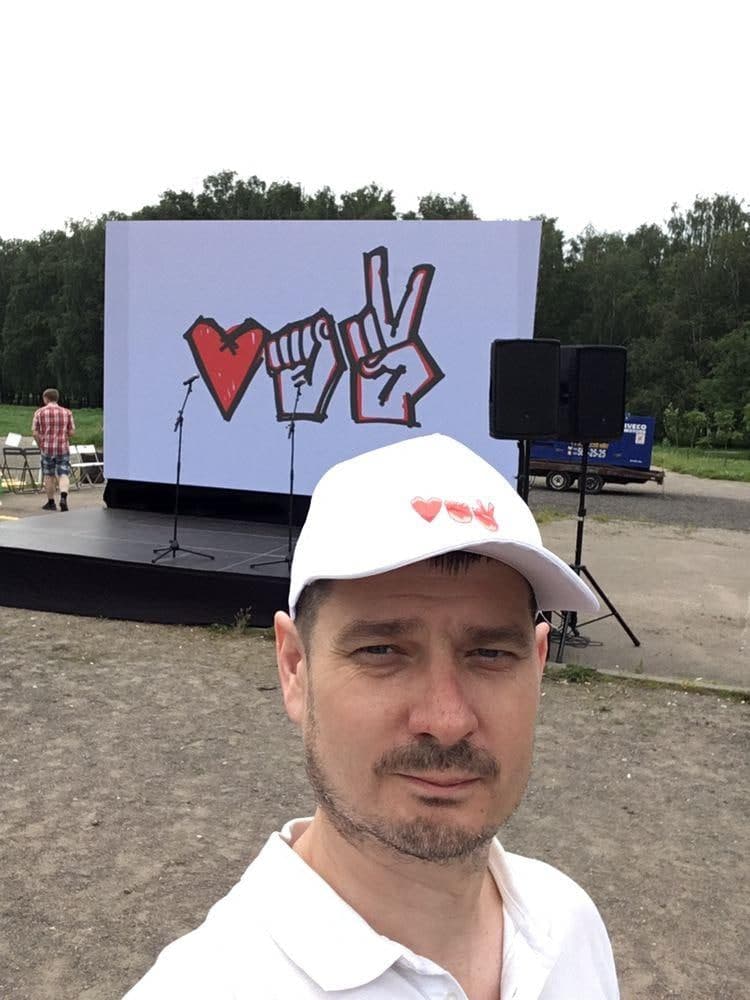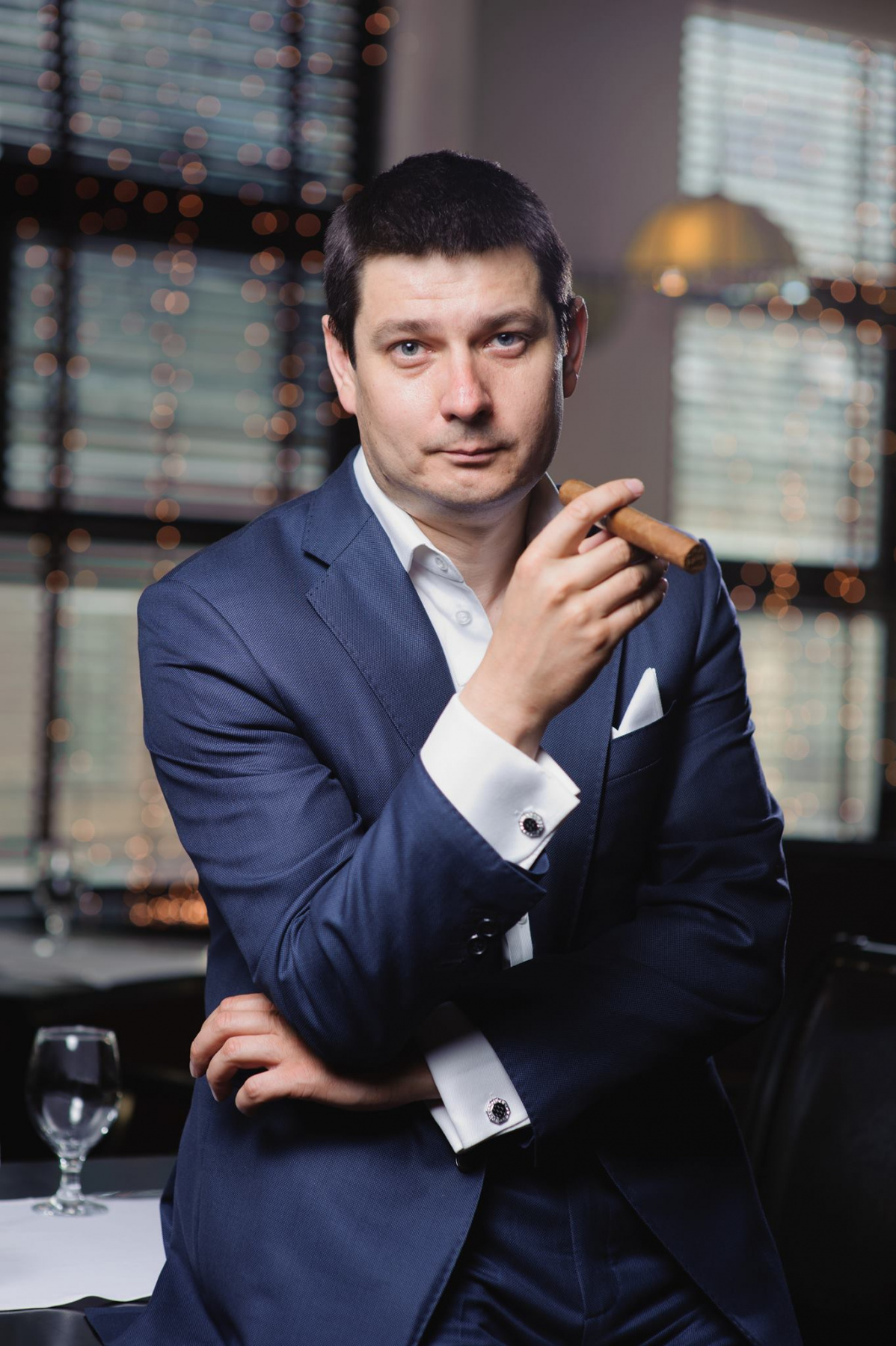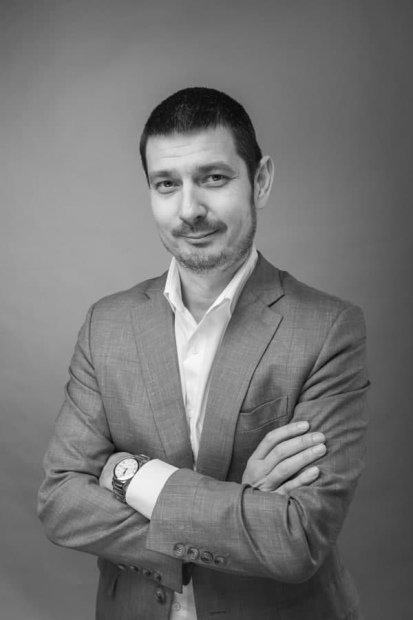We continue to present to you the team of our Foundation - people who give all their strength to the struggle for the freedom of Belarusians. Today we will tell you about Alexey Erokhovets, the Executive Director of the Fund.
And also - an author of books, a connoisseur of whiskey and cigars, a polyglot, and a professional manager with an MBA degree.
- Tell us about yourself. What did you do in Minsk, who did you work directly before the presidential campaign?
- I am a professional manager; therefore, I worked in the field of management. At various enterprises, mainly in the commercial service. When I saw that Viktor Babariko announced recruitment to his team, he wrote that I wanted to be a volunteer without thinking twice. A few days later, Viktor called me back and offered to be the coordinator for the Soviet district of Minsk.
I agreed and thus entered the team. Then, when I went to get my certificate, it turned out that there was a lot of work, including organizational work. Therefore, I first got involved in consulting people who were collecting signatures. Then he took the job of a coordinator for Minsk.
.jpg)
I had a difficult managerial task - literally in three days to organize 5 thousand people to work harmoniously and collect signatures. It was fascinating.
- You didn’t know Viktor Babariko before?
- I read his interview, I can say a little followed his activity, but personally, we did not know each other.
- What was the main difficulty in your work?
- The main difficulty was rather an in scale. The task was exciting. And I must say a lot of good words about Viktor Babariko as a manager because he actually does a very high-quality job.
He attracts good talented people and does not interfere with their work. And this is the foundation of a good business. It is very comfortable to work in his team. Every manager needs to be trusted, and Babariko knows how to do this.
- Was the arrest of Viktor Babariko expected?
- People came and said that there was information that a provocation was being prepared {against Babariko}. When Belgazprombank employees were detained, it became clear that they were doing this to dig under Babariko.
Warned, warned, but still, it came as a certain shock. First of all, we didn’t think they would make up their minds. And secondly, they did not think that they would arrest Eduard {the son of Babariko}, who became a hostage of this situation.
- There were signals, there were warnings. Do you think Viktor Babariko did the right thing by allowing himself to be arrested?
- It was his decision. Right or wrong, depending on the outcome he was pursuing. He understood the risk, probably assessed it as very high. He deliberately took this risk. It was not an accident, not a miscalculation. He knew that, in some sense, he was sacrificing himself to our Revolution.
And considering the recovery that happened after this summer, he achieved his goal. Could I have achieved more - I don't know. But he did a great job.
- And Viktor Babariko could have guessed that everything would drag on like this?
- I think he envisioned different scenarios. A person in business does this - he works out different options (plan A, plan B, plan C). Viktor Babariko admitted that the situation could develop this way under certain conditions. And here I want to say that not only he thought so.
For example, Maria Kolesnikova. In her case, the choice was either-or. She could go to Ukraine, and she could stay. It was a deliberate decision. And of course, she understood what it would lead to, that it could be for a long time. This is a kind of sacrifice for our common future.
- Transfer to the team of Svetlana Tikhanovskaya. Did you have any doubts?
- I would not call it a transfer. When Valery Tsepkalo and Viktor Babariko “failed to register” for completely incomprehensible reasons, then we gathered at the headquarters and discussed what to do next. It was immediately obvious that there were only two options: either to unite with Svetlana Tikhanovskaya or to go out into the street and demand the release of Viktor Babariko.
.jpg)
More preferable, in my opinion, was to unite around one candidate and continue to go all together. And so it happened. Then we went as one team.
- How and under what circumstances did you have to leave Belarus?
- I will not go into details about how I left the country. The question was: either I will sit, or I will do something abroad. I decided to leave, and in my case, I still think it was the right decision.
After I managed to leave, I united with the Belarusians in Vilnius. Maria Moroz and I, the head of the Country for Life Foundation, discussed the prospects and decided to be useful to Belarus by working in the Foundation.
- Was the scale of the repressions that covered Belarus expected, or was Lukashenko able to surprise?
- I personally did not expect this. I had no idea that there would be such a tough answer. It was hoped that on the 9th, we would be able to win the elections, or, in any case, the result in favor of Lukashenko would not be so cynical. I thought they would "draw" not 80 percent, but 51-52, and some questions would challenge the results.
- What will happen next?
- If we now assess the situation and the prospects for its development, then I have such a slightly managerial view. Let's understand that Lukashenko is, in fact, the owner of the country. That is, he owns it and does whatever he wants.
The question is, why is he doing this? What does it give him? Well, first of all, probably money, good income. Secondly, high social status and a lot of opportunities. It is the same with any person who organizes their own business. He expects income and social status from him.
Under what circumstances can a business owner, in our case Lukashenko, stop owning the country? First, it must stop being profitable. This is what we see now. If earlier the country brought money, now it needs investments to support it.
The owners are constantly faced with this. The business is developing non-linearly. At some point in time, you realize that sales have fallen, and the team needs and needs to be supported by people to pay salaries.
- That is, is it more profitable to close the business at such a moment rather than incur losses?
- I have to pay people a salary out of my own pocket to support them. And I am talking not only about the power structures but also about the workers of the unprofitable plant, for example. Otherwise, people will try to take the country away.
But this is only one point. There is also the attraction of this social status and enjoyment of power. This can force you to hold on to power even when the project is very unprofitable.
And the third moment, after the power is lost, there may be responsible for the crimes committed, of which there were also many. And this is another limiting factor.
- At the same time, Lukashenko considers himself to be the creator of the country, without whom everything will fall apart and collapse. Have you encountered this in your activities - when the owner of an unprofitable business does not want to sell it in any way or to transfer the business, which he himself is ruining, to someone's management?
- This is a common occurrence. A moment may come when the owner starts to slow down his business. This business could develop further, but it is limited by the capabilities of the owner himself, who can be, for example, without education, without understanding the business, without knowing languages, without any other skills.
And the owner himself can find it difficult to attract a professional manager because he must be trusted. Plus, the manager comes and starts talking seditious things from the point of view of the owner.
- In this case, what should the Belarusians do, and how can we force this ineffective owner to leave?
- What options do the company's employees have, who see that the director is a tyrant and does not cope with his duties? You can quit and go to another company (which is actively happening now). You can try to change this director.
In our case, the situation is similar to a joint-stock company. Employees are trying to bring it to bankruptcy so that an anti-crisis manager will begin to put the processes normally.
- Is the manager, someone, from outside or from within?
- He can be one of the employees of the company. He knows the business. He knows how things are. It is important that employees, with rare exceptions, want to change management.
- Are you considering the option of returning to Belarus, and under what circumstances is it possible?
- I look forward to returning. First, when it is safe to do so. Secondly, I hope that I will have the opportunity to benefit the country, given my experience and education.
- How can Belarusians abroad help change the situation in the country? And is there a conflict or misunderstanding between those who left the country and those who remained?
- They not only can - they are actively involved {in changing the situation within the country}. Those who left have not lost touch with their homeland.
The Belarusian diaspora, as such, has never existed before. There were separate islands that formed after the first and second world wars. There were some old such diaspora organizations - the BNR Rada, for example. But they weren't very numerous.
And now, the Belarusian diaspora is very close-knit, very active. And I disagree that there is a contradiction between Belarusians abroad and within the country. Of course, we are in different situations. We experience this disease in different ways.

I have now participated in various civil initiatives, and I clearly see two types of people who influence the situation. Those who take and do and those who do nothing but criticize everyone. Those people who lash out with criticism themselves, as a rule, have done nothing and cannot do anything. At the same time, they believe that here you can do and here's an advice.
This is a bad practice. None of us know what will be the winning factor. Each person decides for himself what he can do and what exactly he should do. If you want to be useful, take it and do it. Anything. Just don't criticize people who do what they think is necessary.
- Which should be Belarus?
- I would like Belarus to follow the path of Poland. I'm not necessarily talking about joining the EU. I'm talking about the formation of the economy, the establishment of democratic institutions, the work of the social sphere, how the Poles are proud of their country and their achievements. I would like us to go this way, even if it takes even 10-15 years.
- Is it realistic for Belarus to be successful and at the same time neutral (not with the EU and not with Russia)?
- To create an economically prosperous state, you do not need special miracles. This is not a super-secret technology. This is a clear path and clear actions.
Why isn't this happening now? Because the owner does not have the task of increasing the well-being of people. His task is to take capital offshore and make a profit from this business. He needs people to be poor and dependent on him. These people are easier to manage. It is not necessary to join any union. You do not need to be part of the EU. Look at New Zealand, Switzerland, which are not included in any blocks. It feels great. Singapore, which is constantly talked about - a country raised from ruins. It is thriving. Although not only are there no resources, there really is no land there.
The recipe for success is simple. The rule of law, well-thought-out laws, their stability. Lack of government corruption.
- The first step towards democracy. What needs to be reformed first of all after Lukashenko leaves?
- The law should be above all. This is both an independent court and a separation of powers. Open and publish the archives of the KGB, remove from the system those who violated the law.
- Your forecast. When will this whole situation be resolved: when will political prisoners be released, when will those who have left return home?
- A month ago, I assumed it would last another year or two. But after the "black swan" arrived (the story of the plane's landing with Roman Protasevich), I think that the situation will be resolved in the next six months.
Because the enterprise called Belarus has become abruptly unprofitable {for Lukashenko}, and if this has not yet been calculated, then this is a matter of one or two months. There will be nowhere to intercept.
How it will be - I do not know. I admit that there will be negotiations {between the government and the opposition}.

Blitz.
- Quake or Counter-Strike?
- "Kwaka." It happened so historically. I had a computer club and a Quake team that played in various championships.
- Heroes of Might and Magic or Age of Empires?
- HMM. Definitely. And I like the second part more than the third.
- Cigars. Nicaragua or Cuba?
- Cuba. As Churchill said: "My mouth only accepts Cuba." Cuba is closer to my taste. However, the Nicaraguans are also very good.
- J: Mors or Lapis Trubetskoy?
- This is not a difficult question. Of course, J: Mors.
- Uruchye or Malinovka?
- Uruchye. Because I spent his childhood there, and in Malinovka, I get confused. The buildings are really very similar.
- BT, STV, or ONT?
Probably ONT. Igor Tur pays much more attention to us than other {propagandists}. I need to send him a reply. But in general, in the new Belarus, television should first of all be independent.
- Are books a hobby or a business?
- It's a hobby. A topic that I do not promote at all. I write half on the table. I treat literature with great love. The printed word must be very accurate, very high quality. Chekhov is very close to such authors as Peres-Reverte, Sorokin, Pelevin, Dostoevsky.
You can help Foundation HERE.
And also - an author of books, a connoisseur of whiskey and cigars, a polyglot, and a professional manager with an MBA degree.
- Tell us about yourself. What did you do in Minsk, who did you work directly before the presidential campaign?
- I am a professional manager; therefore, I worked in the field of management. At various enterprises, mainly in the commercial service. When I saw that Viktor Babariko announced recruitment to his team, he wrote that I wanted to be a volunteer without thinking twice. A few days later, Viktor called me back and offered to be the coordinator for the Soviet district of Minsk.
I agreed and thus entered the team. Then, when I went to get my certificate, it turned out that there was a lot of work, including organizational work. Therefore, I first got involved in consulting people who were collecting signatures. Then he took the job of a coordinator for Minsk.
.jpg)
I had a difficult managerial task - literally in three days to organize 5 thousand people to work harmoniously and collect signatures. It was fascinating.
- You didn’t know Viktor Babariko before?
- I read his interview, I can say a little followed his activity, but personally, we did not know each other.
- What was the main difficulty in your work?
- The main difficulty was rather an in scale. The task was exciting. And I must say a lot of good words about Viktor Babariko as a manager because he actually does a very high-quality job.
He attracts good talented people and does not interfere with their work. And this is the foundation of a good business. It is very comfortable to work in his team. Every manager needs to be trusted, and Babariko knows how to do this.
- Was the arrest of Viktor Babariko expected?
- People came and said that there was information that a provocation was being prepared {against Babariko}. When Belgazprombank employees were detained, it became clear that they were doing this to dig under Babariko.
Warned, warned, but still, it came as a certain shock. First of all, we didn’t think they would make up their minds. And secondly, they did not think that they would arrest Eduard {the son of Babariko}, who became a hostage of this situation.
- There were signals, there were warnings. Do you think Viktor Babariko did the right thing by allowing himself to be arrested?
- It was his decision. Right or wrong, depending on the outcome he was pursuing. He understood the risk, probably assessed it as very high. He deliberately took this risk. It was not an accident, not a miscalculation. He knew that, in some sense, he was sacrificing himself to our Revolution.
And considering the recovery that happened after this summer, he achieved his goal. Could I have achieved more - I don't know. But he did a great job.
- And Viktor Babariko could have guessed that everything would drag on like this?
- I think he envisioned different scenarios. A person in business does this - he works out different options (plan A, plan B, plan C). Viktor Babariko admitted that the situation could develop this way under certain conditions. And here I want to say that not only he thought so.
For example, Maria Kolesnikova. In her case, the choice was either-or. She could go to Ukraine, and she could stay. It was a deliberate decision. And of course, she understood what it would lead to, that it could be for a long time. This is a kind of sacrifice for our common future.
- Transfer to the team of Svetlana Tikhanovskaya. Did you have any doubts?
- I would not call it a transfer. When Valery Tsepkalo and Viktor Babariko “failed to register” for completely incomprehensible reasons, then we gathered at the headquarters and discussed what to do next. It was immediately obvious that there were only two options: either to unite with Svetlana Tikhanovskaya or to go out into the street and demand the release of Viktor Babariko.
.jpg)
More preferable, in my opinion, was to unite around one candidate and continue to go all together. And so it happened. Then we went as one team.
- How and under what circumstances did you have to leave Belarus?
- I will not go into details about how I left the country. The question was: either I will sit, or I will do something abroad. I decided to leave, and in my case, I still think it was the right decision.
After I managed to leave, I united with the Belarusians in Vilnius. Maria Moroz and I, the head of the Country for Life Foundation, discussed the prospects and decided to be useful to Belarus by working in the Foundation.
- Was the scale of the repressions that covered Belarus expected, or was Lukashenko able to surprise?
- I personally did not expect this. I had no idea that there would be such a tough answer. It was hoped that on the 9th, we would be able to win the elections, or, in any case, the result in favor of Lukashenko would not be so cynical. I thought they would "draw" not 80 percent, but 51-52, and some questions would challenge the results.
- What will happen next?
- If we now assess the situation and the prospects for its development, then I have such a slightly managerial view. Let's understand that Lukashenko is, in fact, the owner of the country. That is, he owns it and does whatever he wants.
The question is, why is he doing this? What does it give him? Well, first of all, probably money, good income. Secondly, high social status and a lot of opportunities. It is the same with any person who organizes their own business. He expects income and social status from him.
Under what circumstances can a business owner, in our case Lukashenko, stop owning the country? First, it must stop being profitable. This is what we see now. If earlier the country brought money, now it needs investments to support it.
The owners are constantly faced with this. The business is developing non-linearly. At some point in time, you realize that sales have fallen, and the team needs and needs to be supported by people to pay salaries.
- That is, is it more profitable to close the business at such a moment rather than incur losses?
- I have to pay people a salary out of my own pocket to support them. And I am talking not only about the power structures but also about the workers of the unprofitable plant, for example. Otherwise, people will try to take the country away.
But this is only one point. There is also the attraction of this social status and enjoyment of power. This can force you to hold on to power even when the project is very unprofitable.
And the third moment, after the power is lost, there may be responsible for the crimes committed, of which there were also many. And this is another limiting factor.
- At the same time, Lukashenko considers himself to be the creator of the country, without whom everything will fall apart and collapse. Have you encountered this in your activities - when the owner of an unprofitable business does not want to sell it in any way or to transfer the business, which he himself is ruining, to someone's management?
- This is a common occurrence. A moment may come when the owner starts to slow down his business. This business could develop further, but it is limited by the capabilities of the owner himself, who can be, for example, without education, without understanding the business, without knowing languages, without any other skills.
And the owner himself can find it difficult to attract a professional manager because he must be trusted. Plus, the manager comes and starts talking seditious things from the point of view of the owner.
- In this case, what should the Belarusians do, and how can we force this ineffective owner to leave?
- What options do the company's employees have, who see that the director is a tyrant and does not cope with his duties? You can quit and go to another company (which is actively happening now). You can try to change this director.
In our case, the situation is similar to a joint-stock company. Employees are trying to bring it to bankruptcy so that an anti-crisis manager will begin to put the processes normally.
- Is the manager, someone, from outside or from within?
- He can be one of the employees of the company. He knows the business. He knows how things are. It is important that employees, with rare exceptions, want to change management.
- Are you considering the option of returning to Belarus, and under what circumstances is it possible?
- I look forward to returning. First, when it is safe to do so. Secondly, I hope that I will have the opportunity to benefit the country, given my experience and education.
- How can Belarusians abroad help change the situation in the country? And is there a conflict or misunderstanding between those who left the country and those who remained?
- They not only can - they are actively involved {in changing the situation within the country}. Those who left have not lost touch with their homeland.
The Belarusian diaspora, as such, has never existed before. There were separate islands that formed after the first and second world wars. There were some old such diaspora organizations - the BNR Rada, for example. But they weren't very numerous.
And now, the Belarusian diaspora is very close-knit, very active. And I disagree that there is a contradiction between Belarusians abroad and within the country. Of course, we are in different situations. We experience this disease in different ways.

I have now participated in various civil initiatives, and I clearly see two types of people who influence the situation. Those who take and do and those who do nothing but criticize everyone. Those people who lash out with criticism themselves, as a rule, have done nothing and cannot do anything. At the same time, they believe that here you can do and here's an advice.
This is a bad practice. None of us know what will be the winning factor. Each person decides for himself what he can do and what exactly he should do. If you want to be useful, take it and do it. Anything. Just don't criticize people who do what they think is necessary.
- Which should be Belarus?
- I would like Belarus to follow the path of Poland. I'm not necessarily talking about joining the EU. I'm talking about the formation of the economy, the establishment of democratic institutions, the work of the social sphere, how the Poles are proud of their country and their achievements. I would like us to go this way, even if it takes even 10-15 years.
- Is it realistic for Belarus to be successful and at the same time neutral (not with the EU and not with Russia)?
- To create an economically prosperous state, you do not need special miracles. This is not a super-secret technology. This is a clear path and clear actions.
Why isn't this happening now? Because the owner does not have the task of increasing the well-being of people. His task is to take capital offshore and make a profit from this business. He needs people to be poor and dependent on him. These people are easier to manage. It is not necessary to join any union. You do not need to be part of the EU. Look at New Zealand, Switzerland, which are not included in any blocks. It feels great. Singapore, which is constantly talked about - a country raised from ruins. It is thriving. Although not only are there no resources, there really is no land there.
The recipe for success is simple. The rule of law, well-thought-out laws, their stability. Lack of government corruption.
- The first step towards democracy. What needs to be reformed first of all after Lukashenko leaves?
- The law should be above all. This is both an independent court and a separation of powers. Open and publish the archives of the KGB, remove from the system those who violated the law.
- Your forecast. When will this whole situation be resolved: when will political prisoners be released, when will those who have left return home?
- A month ago, I assumed it would last another year or two. But after the "black swan" arrived (the story of the plane's landing with Roman Protasevich), I think that the situation will be resolved in the next six months.
Because the enterprise called Belarus has become abruptly unprofitable {for Lukashenko}, and if this has not yet been calculated, then this is a matter of one or two months. There will be nowhere to intercept.
How it will be - I do not know. I admit that there will be negotiations {between the government and the opposition}.

Blitz.
- Quake or Counter-Strike?
- "Kwaka." It happened so historically. I had a computer club and a Quake team that played in various championships.
- Heroes of Might and Magic or Age of Empires?
- HMM. Definitely. And I like the second part more than the third.
- Cigars. Nicaragua or Cuba?
- Cuba. As Churchill said: "My mouth only accepts Cuba." Cuba is closer to my taste. However, the Nicaraguans are also very good.
- J: Mors or Lapis Trubetskoy?
- This is not a difficult question. Of course, J: Mors.
- Uruchye or Malinovka?
- Uruchye. Because I spent his childhood there, and in Malinovka, I get confused. The buildings are really very similar.
- BT, STV, or ONT?
Probably ONT. Igor Tur pays much more attention to us than other {propagandists}. I need to send him a reply. But in general, in the new Belarus, television should first of all be independent.
- Are books a hobby or a business?
- It's a hobby. A topic that I do not promote at all. I write half on the table. I treat literature with great love. The printed word must be very accurate, very high quality. Chekhov is very close to such authors as Peres-Reverte, Sorokin, Pelevin, Dostoevsky.
You can help Foundation HERE.


 Continue
Continue
